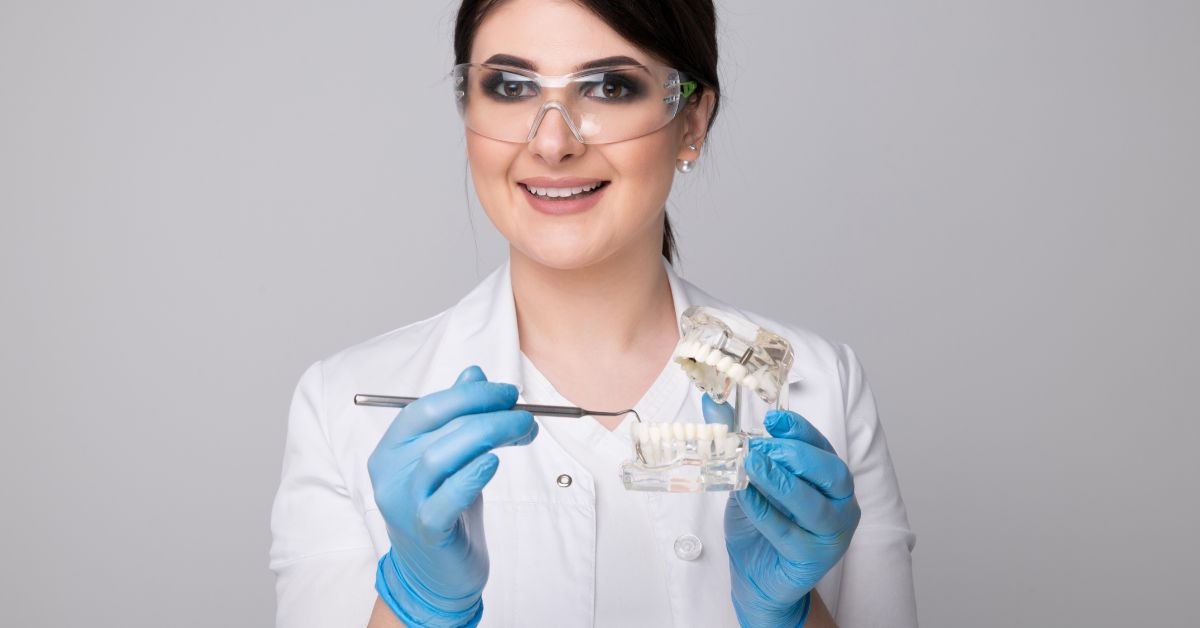Dental implants have become one of the most popular and reliable options for replacing missing teeth. However, the decision of who should perform the procedure—an oral surgeon or a periodontist—can be difficult. While both professionals are highly trained, their expertise and training differ, which impacts their approach to the implant process. In this article, we’ll break down the key differences between oral surgeons and periodontists, discuss why oral surgeons are often preferred for dental implants, and explore the benefits of choosing the right specialist for the job
Understanding Dental Implants and Their Need
Before diving into the specific roles of oral surgeons and periodontists, it’s important to understand the procedure itself and why it’s beneficial.
-
What Are Dental Implants?
Dental implants are artificial tooth roots placed in the jaw to support crowns, bridges, or dentures. They offer a permanent solution to missing teeth and help preserve jawbone health. -
Why Are Dental Implants Important?
Implants restore both functionality and appearance, while preventing bone loss and maintaining facial structure.
The Key Differences Between Periodontists and Oral Surgeons
Although both specialists are involved in dental implant procedures, their skills and focus areas vary.
Oral Surgeons’ Expertise
Oral surgeons are experts in surgeries involving the mouth, jaw, and facial structures. They receive advanced training in performing complex surgeries, including the placement of dental implants, bone grafting, and treating jaw disorders.
Periodontists’ Expertise
Periodontists specialize in the prevention, diagnosis, and treatment of gum disease, as well as the placement and maintenance of dental implants. They focus on ensuring the gums and surrounding bone are in optimal condition before implant placement.
Training and Specialization
Oral surgeons complete dental school followed by several years of residency in oral and maxillofacial surgery. Periodontists complete dental school, then go on to specialize in the health of the gums, often including bone grafting and tissue regeneration.
Why Are Oral Surgeons Preferred for Dental Implant Procedures?
Oral surgeons are often the go-to specialists for dental implant surgery, especially in more complex cases.
Complex Surgeries
Oral surgeons are skilled in handling complex implant cases, such as bone grafting, sinus lifts, and other procedures that require a high level of surgical skill.
Comprehensive Expertise
While periodontists are excellent at preparing the gums and bone for implants, oral surgeons can handle the entire implant process, including placing the implant and performing any necessary jawbone or soft tissue surgery.
Managing Complications
Oral surgeons are trained to manage complications that may arise during or after the implant procedure, ensuring a smoother recovery process for patients.
The Benefits of Choosing an Oral Surgeon for Dental Implants
Choosing an oral surgeon for your dental implants offers several advantages, particularly for patients with specific needs.
Expert Surgical Care
Oral surgeons have specialized training in advanced surgical techniques, making them more capable of addressing complex cases and challenges during the procedure.
Comprehensive Care for Complex Cases
If you require additional surgeries, such as bone grafts or tissue regeneration, an oral surgeon is better equipped to handle these complications alongside the implant placement.
Experience with Facial Anatomy
Oral surgeons’ extensive knowledge of facial anatomy ensures a more precise placement of implants, minimizing risks and improving the overall outcome.
Comparing Oral Surgeons and Periodontists for Dental Implants
When deciding between an oral surgeon and a periodontist, consider your specific dental condition and the complexity of your case.
-
When to Choose an Oral Surgeon
Choose an oral surgeon if you have significant bone loss, require complex surgeries like bone grafting or sinus lifts, or need comprehensive surgical care. -
When to Choose a Periodontist
Periodontists are a great choice if your primary concern is gum health, and you only need a straightforward dental implant procedure without additional surgeries. -
Combination of Both
In some cases, a combination of both specialists may be needed, especially if your case involves both gum issues and the need for surgical intervention.
Frequently Asked Questions:
What is the primary difference between a periodontist and an oral surgeon?
Periodontists focus on gum health and tissue regeneration, while oral surgeons specialize in complex surgeries involving the mouth, jaw, and face.
Can periodontists place dental implants?
Yes, periodontists can place dental implants, particularly when the patient has healthy gums and bone.
Do I need an oral surgeon for dental implants?
If your case involves complex issues like bone grafting, sinus lifts, or other surgeries, an oral surgeon is generally preferred.
How do I know if I need an oral surgeon or a periodontist for my dental implants?
Consult your dentist to assess your individual case. If you need advanced surgeries or have significant bone loss, an oral surgeon will likely be the better option.
Are oral surgeons more expensive than periodontists?
Oral surgeons may charge more due to the complexity of the procedures they perform, especially for patients who need additional surgeries along with the implants.
Conclusion:
Both oral surgeons and periodontists play vital roles in the dental implant process, but choosing the right specialist depends on your specific needs. Oral surgeons excel in complex cases involving surgical interventions, while periodontists are experts in gum health and can ensure the foundation for your implants is strong. For many patients, an oral surgeon is preferred for their ability to handle a wide range of implant-related procedures, from the initial surgery to any necessary follow-up treatments.
